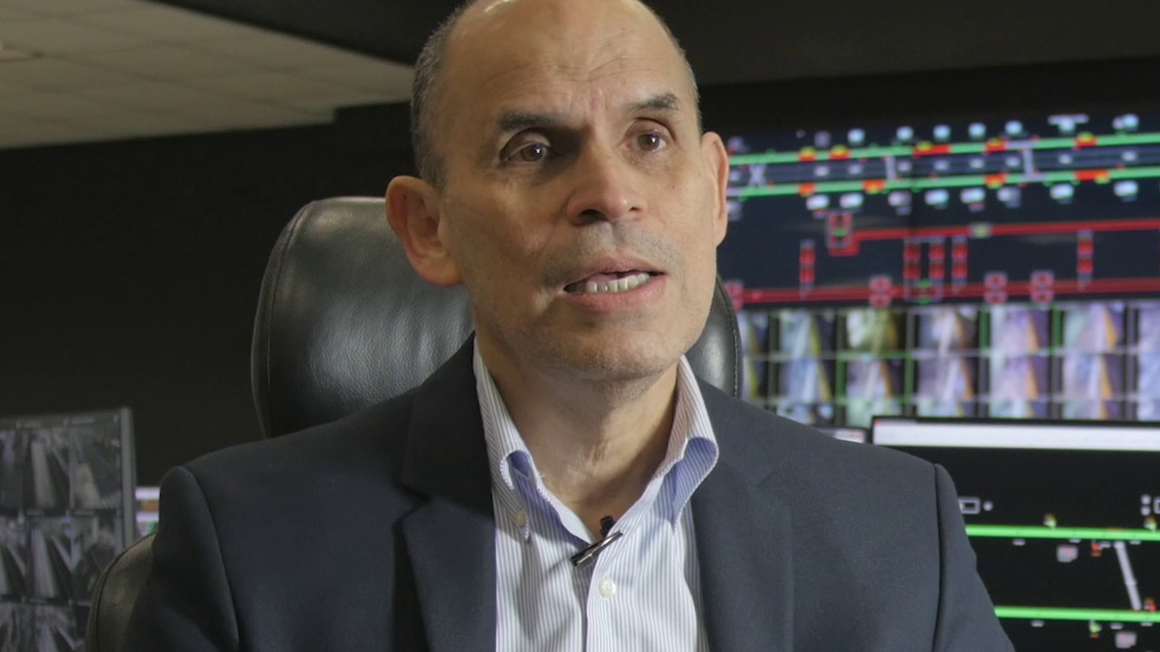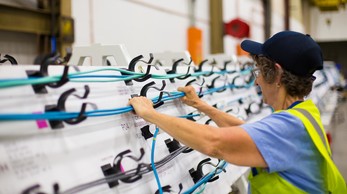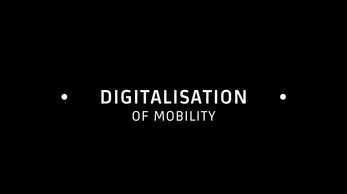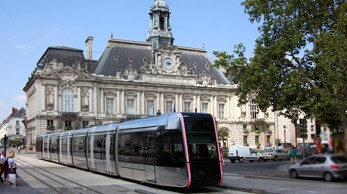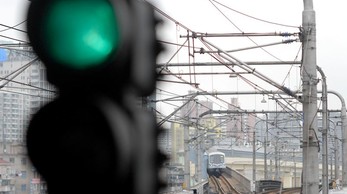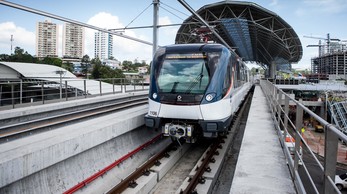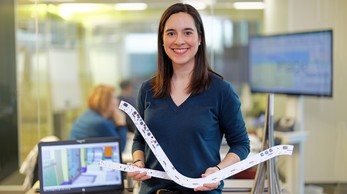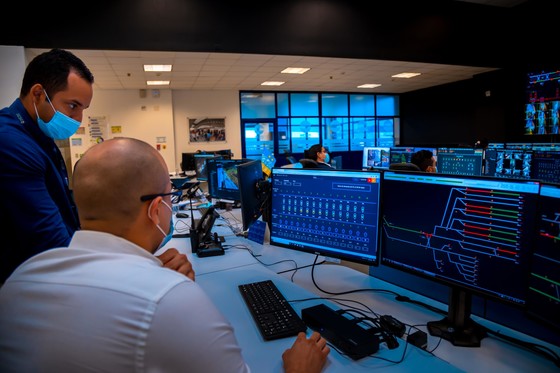
Alstom offers artificial intelligence solution to ensure passenger distancing and safety in trains and stations
Alstom offers artificial intelligence solution to ensure passenger distancing and safety in trains and stations
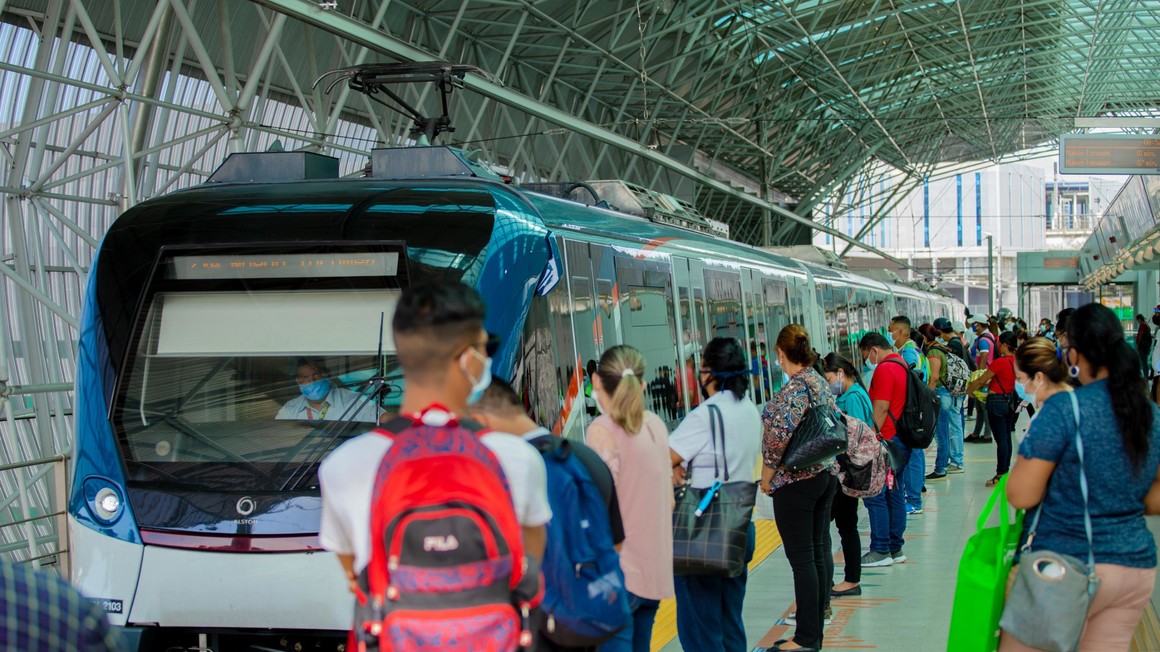
Covid-19: Panama Metro uses Alstom mobility orchestration technology to limit occupancy rate to 40%
30 June 2020 – Alstom has launched a new version of Mastria, the world’s first multimodal supervision and mobility orchestration solution, that uses AI to provide operators and transport authorities with enhanced passenger flow management tools. The solution allows operators to adapt, easily and in real time, their offer to the various social distancing and public gathering requirements that have arisen due to the Covid-19 pandemic.
Thanks to big data and machine learning, Mastria gives operators higher visibility on passenger distribution and flow in trains and stations, as well as enhanced predictive capabilities. This equates to the ability to anticipate and control passenger density and operations in real time, adapting train frequency, capacity and the required number of trains, as well as passenger flows into stations, among other things. Matching the supply of trains with the demand optimises operating conditions, including costs, and is especially useful for managing fluctuating demand peaks, such as during rush hours or special events, or special mobility restrictions, as in the case of Covid-19.
The new implementation of Mastria aggregates information on passenger demand from train weight sensors, ticketing machines, traffic signalling, management systems, surveillance cameras and mobile networks in order to offer a real-time picture of passenger flows. From this point, Mastria processes the information and provides operators with the information and recommendations necessary to ensure and anticipate specified levels of occupation, as a percentage of maximum capacity, at all times. It can suggest increasing trains frequency, redistributing the flow of people to particular stations, readjustments to other transport systems that impact the subway, restricting entry to stations or even managing the distribution of passengers on the platform to align them with cars with more space on a given train. Mastria’s powerful prediction algorithms anticipate these situations, allowing proper planning of the entire system.
“To predict is to prevent”, says Stephane Feray-Beaumont, Vice President Innovation & Smart Mobility of Alstom Digital Mobility. “The ability of this tool to analyse millions of pieces data in real time makes it an indispensable ally for operators at all times, but especially in the current context. Simply put, it matches transport offer to demand, no matter the conditions. All experts agree that public transportation, and particularly rail, will continue to be the backbone of urban mobility. Artificial intelligence will be our best travel partner in this new era of mobility.”
The Panama experience
Alstom implemented Mastria for Panama Metro at the end of last year. The objective was to analyse traveller flows and offer a way to avoid the saturation that appeared at unpredictable times and only in certain stations. In only three months, and thanks to deep learning techniques (artificial neural networks that allow self-learning algorithms), localized saturation could be predicted up to 30 minutes before it could be visibly observed, thereby allowing remedial action that reduced waiting times in stations by 12%.
Currently, in response to the Covid-19 situation, the same technology is being used to adapt the operational actions that maintain the train's load to 40% of its maximum capacity, as recommended by the country's health authorities. Using various data sources, such as user travel information and the weight of cars, new features have been developed: real-time monitoring of passenger density and flows in stations and trains, with new predictive alerts, simulation of opening and closing access to the stations and analysis of the distribution of passengers throughout the length of the trains.
Mastria technology
Mastria is based on four main standard functions: multimodal supervision, traffic management, coordination of operations and predictive analysis. These functions are highly configurable and can be combined according to the needs of operators and the global mobility network environment.
Mastria ingests data from external information and control systems through secure network connections. It is flexible and scalable, and adaptable to different transport networks of any size. Mastria can be extended to include new lines or additional means of transportation. Numerous pilot implementations of Mastria’s artificial intelligence technology have already produced results in Paris, Florence, Zaragoza and Panama.
